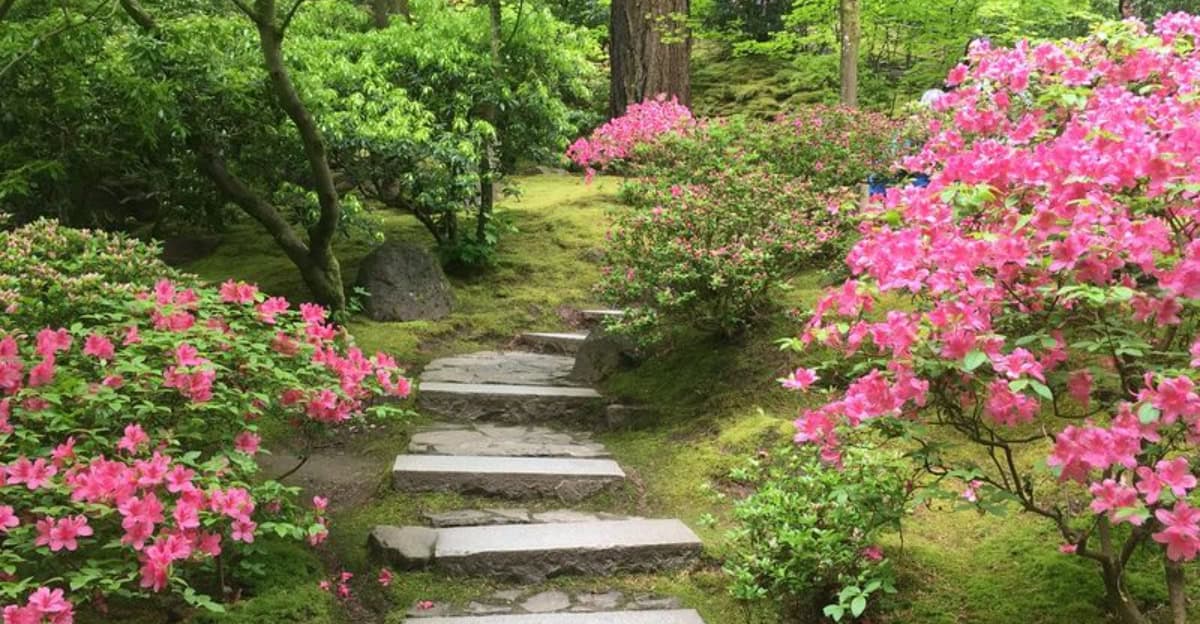Discover the tranquility of Japanese Zen gardens through the perfect selection of plants. Each carefully chosen plant not only enhances the beauty but also the serene atmosphere of your garden.
The following seven plants are ideal for creating a peaceful and reflective space that embodies the essence of Zen aesthetics.
Let’s explore these wonderful botanical choices that will bring harmony, balance, and a touch of nature’s art to your garden.
1. Japanese Maple (Acer palmatum)
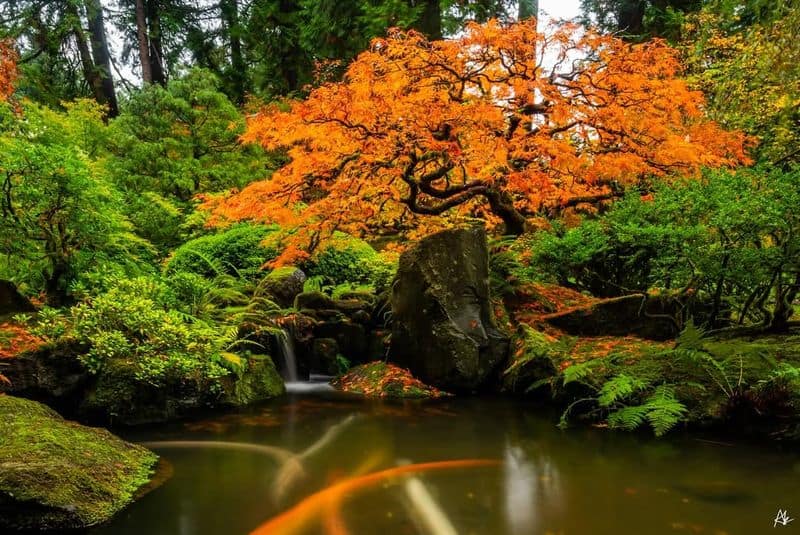
With its strikingly vibrant leaves, the Japanese Maple is a popular choice for Zen gardens. This tree offers a burst of color, especially in autumn, when its leaves turn fiery shades of red and orange.
Imagine these hues reflecting in a pond or creating a vivid contrast against the greenery.
The Japanese Maple’s delicate, lace-like leaves add a touch of elegance and refinement. Its slow growth and graceful form make it an ideal focal point or a complementary addition to stone pathways.
A piece of living art, this maple invites contemplation and peace.
2. Bamboo (Bambusoideae)

Bamboo is an iconic element in Japanese Zen gardens, symbolizing strength and flexibility. Its tall, slender stalks create natural screens and pathways, lending an air of mystery and seclusion.
The gentle rustling of bamboo leaves in the wind provides a soothing soundscape, enhancing the meditative quality of the garden.
Bamboo’s rapid growth and lushness make it both a practical and aesthetic choice, offering privacy and a sense of enclosure.
Whether as a backdrop or a central feature, bamboo brings a timeless elegance to any Zen garden setting.
3. Moss (Bryophyta)
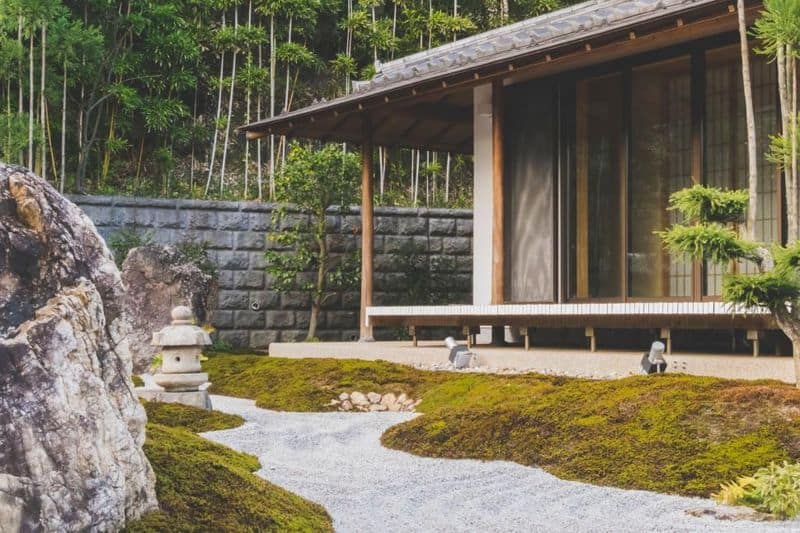
Moss serves as the gentle, verdant foundation for many Japanese Zen gardens. Its soft, plush texture invites touch, creating a tactile and visual delight.
Spread across rocks and soil, moss adds an aged, timeless quality to the garden landscape.
The natural moisture retention of moss helps in maintaining a cool environment, fostering an atmosphere of calm and tranquility.
Its ability to thrive in low light conditions makes it perfect for shaded areas, accentuating the garden’s lushness.
Moss seamlessly connects all elements, unifying stone, water, and plants into a cohesive whole.
4. Azalea (Rhododendron)
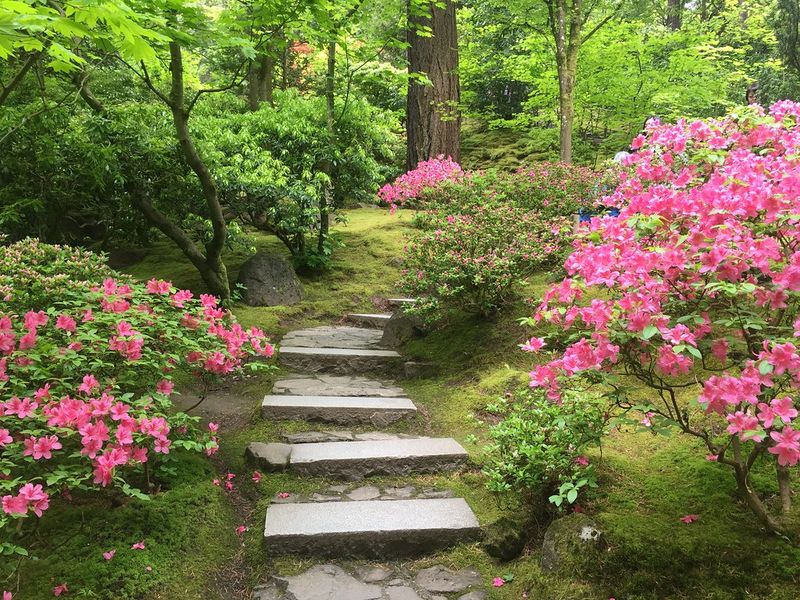
Azaleas bring bursts of color and life to Zen gardens with their stunning blooms. In spring, these shrubs explode with blossoms, offering shades from soft pink to vivid white, enriching the garden’s visual appeal.
Their compact form and ability to be pruned make Azaleas versatile, allowing gardeners to shape them into harmonious designs fitting the garden’s aesthetics.
Set against stones or near a water feature, Azaleas create eye-catching contrasts. Their seasonal display is a reminder of nature’s cycles, inspiring reflection on impermanence and beauty.
5. Japanese Black Pine (Pinus thunbergii)
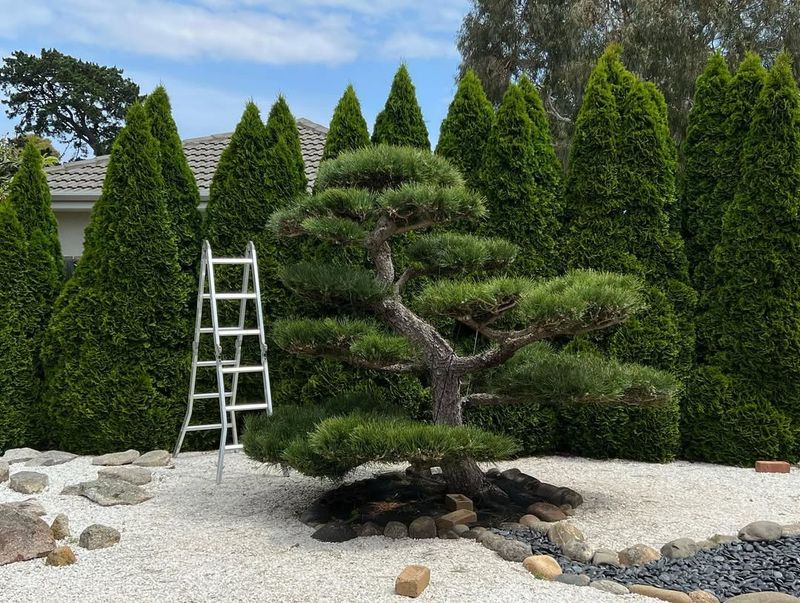
The Japanese Black Pine stands as a symbol of resilience and strength in a Zen garden. Its rugged trunk and twisted branches are a testament to nature’s artistry, offering a dramatic yet serene presence.
With its dark, lush needles, this evergreen provides year-round interest and structure. Its adaptability to pruning allows for the creation of elegant shapes that enhance the garden’s aesthetic.
Placed strategically, the Japanese Black Pine serves as a focal point, drawing the eye and inviting contemplation. Its majestic silhouette against the sky is a powerful reminder of nature’s grandeur.
6. Cherry Blossom (Prunus serrulata)
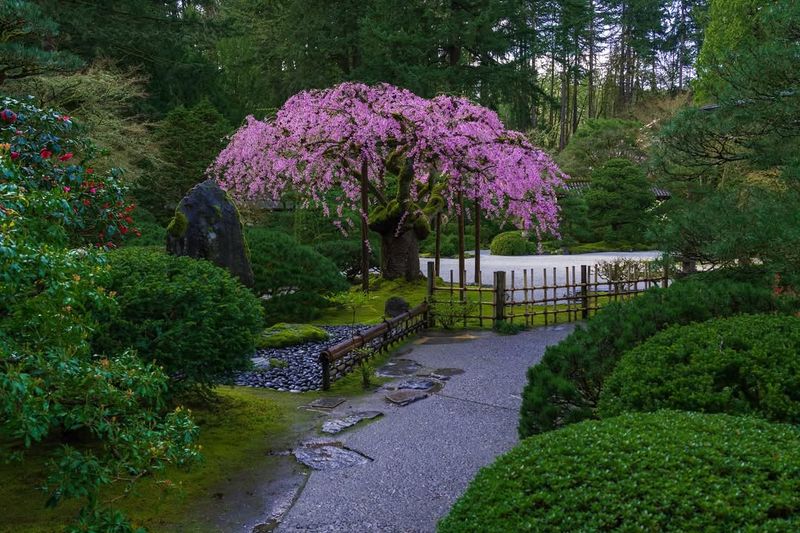
Cherry Blossom trees, with their delicate pink flowers, are synonymous with the ephemeral beauty cherished in Japanese culture.
In a Zen garden, their blossoms offer a fleeting spectacle of nature’s wonder.
The brief blooming period of Cherry Blossoms encourages mindfulness, prompting appreciation of the present moment. Their fallen petals create a picturesque, almost dreamlike carpet on garden paths.
Cherry Blossoms symbolize renewal and the beauty of life, making them an ideal choice for those seeking to infuse their garden with cultural significance and seasonal allure.
7. Hosta (Hosta sieboldiana)
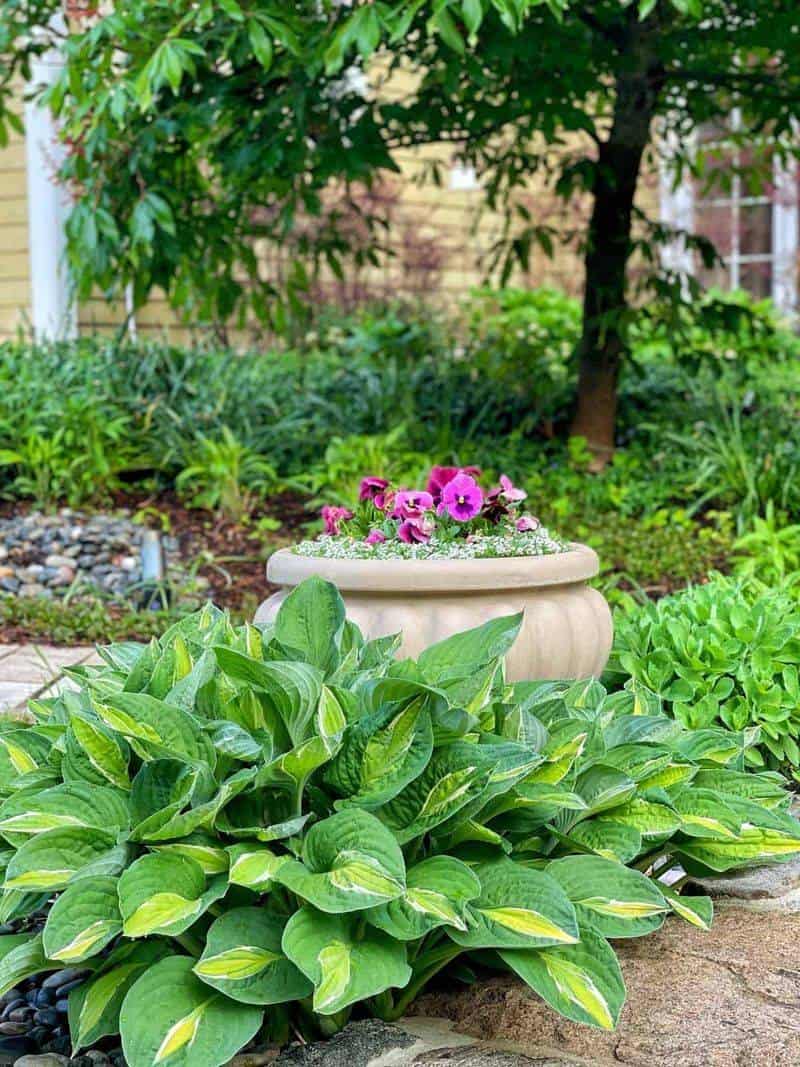
Hostas are a perfect choice for shaded areas in a Zen garden, offering lush foliage and a soothing presence.
Their broad, variegated leaves create a striking contrast against other garden elements, adding texture and depth.
These resilient plants thrive in low light and require minimal maintenance, making them ideal for gardeners seeking simplicity and elegance.
Hostas’ ability to cover ground quickly helps prevent weeds, maintaining garden harmony.
Their gentle curves and varied shades of green contribute to a peaceful environment, inviting relaxation and reflection in the cool, sheltered corners of the garden.

